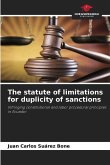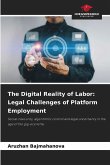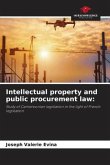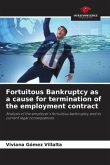The aim of this paper is to find out whether and how employees who are entitled to a pension can continue to be employed in order to counteract staff shortages. The new regulation in Section 41(3) of SGB VI is already seen as a way out by many companies, but from a legal perspective it involves a high level of risk and should ideally be amended again by the legislature. The work process consists, on the one hand, of analysing and interpreting legal texts. This thesis also provides a template for companies to circumvent the risks of Section 41(3). On the other hand, the Bremen Regional Labour Court provides a practical example of the risks associated with Section 41 sentence 3 SGB VI. Advantages, disadvantages and suggestions for improving the provision round off the thesis. In addition, various opinions have been included in order to present a variety of perspectives on the planned law.
Bitte wählen Sie Ihr Anliegen aus.
Rechnungen
Retourenschein anfordern
Bestellstatus
Storno








